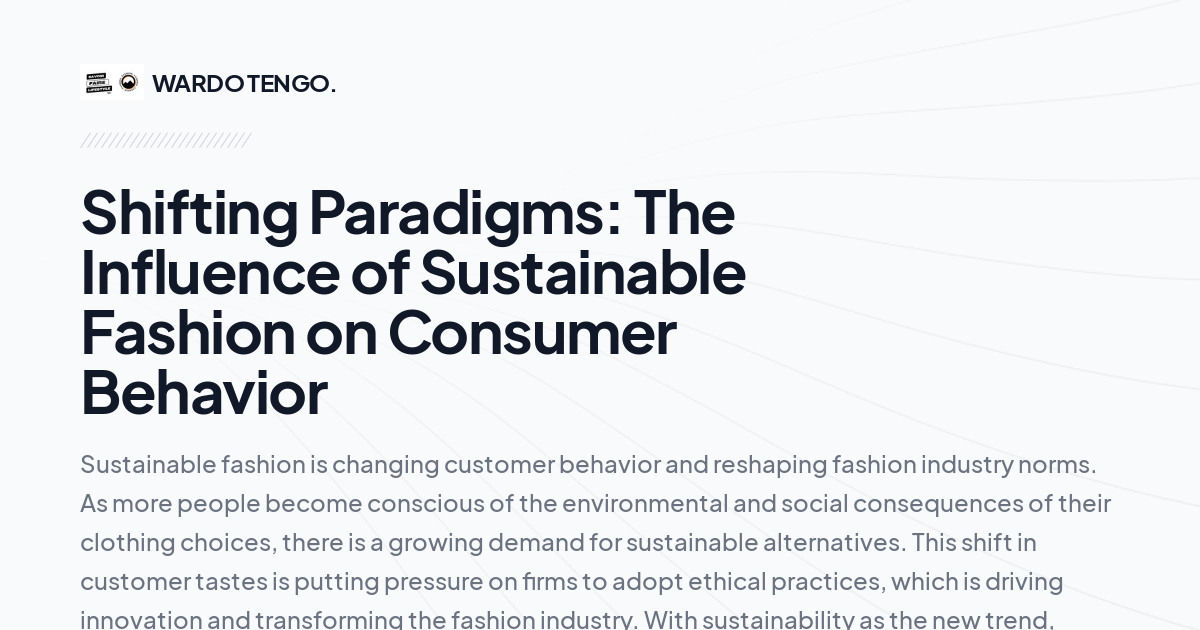

Sustainable fashion is shaping the future of the industry, propelling it towards a more environmentally and socially conscious path. From the rise of eco-friendly materials and ethical production practices to the adoption of circularity and transparency, sustainability is no longer a niche concept but a driving force of innovation. By embracing sustainable principles, fashion is evolving into a force for positive change, paving the way for a more responsible and resilient future.


Uncover how sustainable fashion is empowering emerging markets, driving positive change, and creating economic opportunities for local communities.

Sustainable fashion is changing customer behavior and reshaping fashion industry norms. As more people become conscious of the environmental and social consequences of their clothing choices, there is a growing demand for sustainable alternatives. This shift in customer tastes is putting pressure on firms to adopt ethical practices, which is driving innovation and transforming the fashion industry. With sustainability as the new trend, customers are becoming powerful agents of change, affecting companies through their deliberate choices.

Explore the transformative power of education in driving sustainable fashion practices. Discover how educational institutions, industry professionals, and consumers are coming together to create a more conscious and responsible fashion industry. From sustainable design principles to ethical production methods, learn how education plays a crucial role in fostering a sustainable mindset and shaping the future of fashion.

From extending the lifespan of garments to fostering a sense of community and promoting mindful consumption, sustainable fashion is reshaping the way we think about ownership and revolutionizing the fashion industry. Join the movement and uncover the transformative potential of sustainable fashion in building a more sustainable and inclusive sharing economy.

From Instagram fashion challenges to YouTube hauls featuring ethical brands, social media is reshaping the fashion landscape and encouraging a shift towards more sustainable practices. Uncover the strategies and campaigns employed by influencers and brands to engage their audience, amplify the message of sustainability, and ignite conversations about ethical fashion.